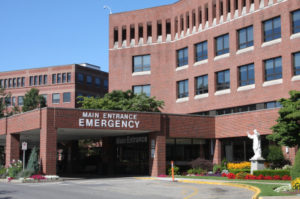Access to Medicaid Services
 A commentary in the New England Journal of Medicine by noted Medicaid expert and advocate Sara Rosenbaum examines the issues of access to Medicaid services, the effect of adequate (or inadequate) Medicaid reimbursement on that access, and the role the federal government and public policy can play in enhancing access to care for low-income Medicaid recipients.
A commentary in the New England Journal of Medicine by noted Medicaid expert and advocate Sara Rosenbaum examines the issues of access to Medicaid services, the effect of adequate (or inadequate) Medicaid reimbursement on that access, and the role the federal government and public policy can play in enhancing access to care for low-income Medicaid recipients.
Find that commentary here.







